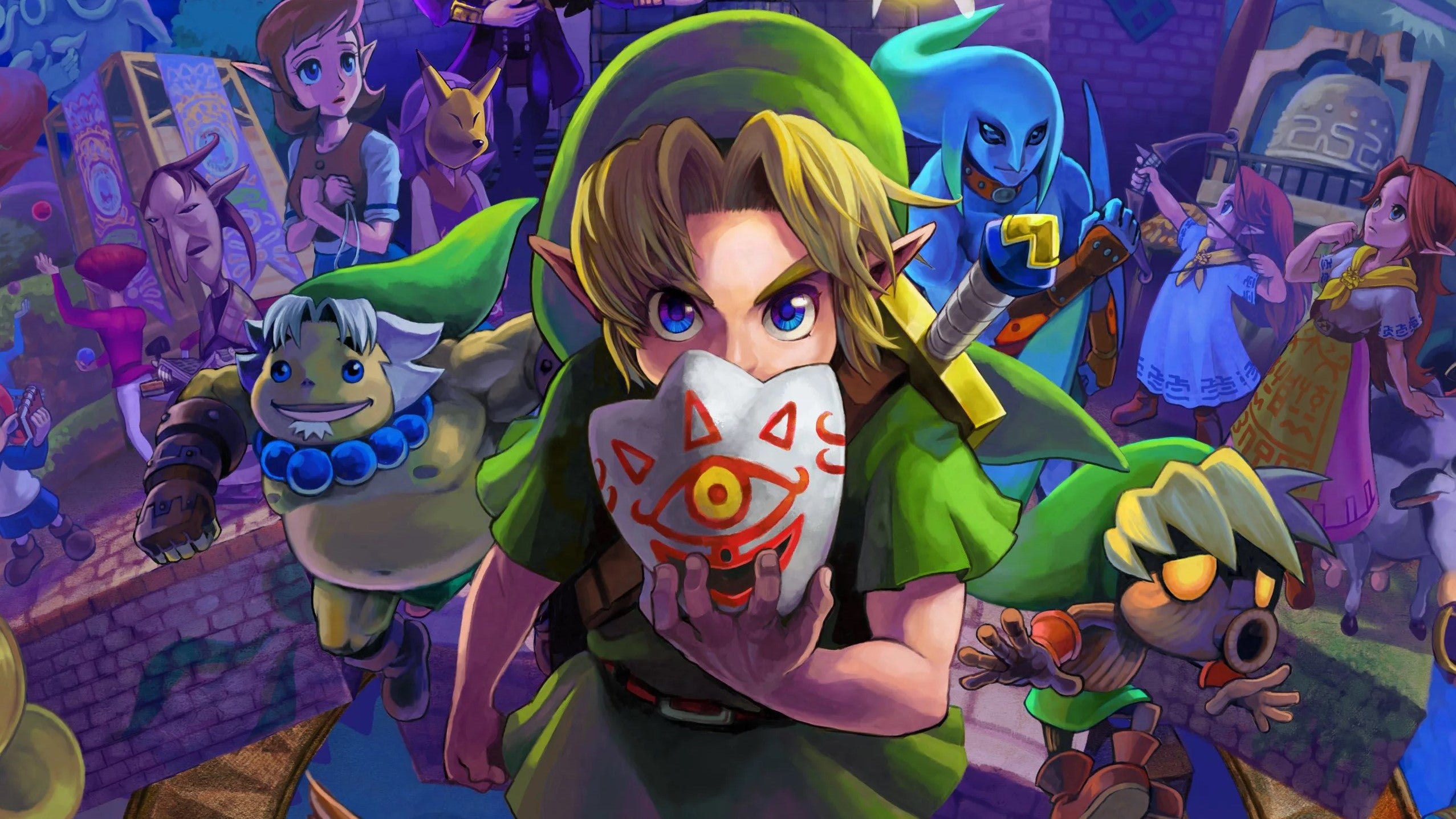
The Legend of Zelda: Majora's Mask is a game that has stuck with me for a long time. I've never entirely known why. When I imagine playing Majora's Mask, I don't sense the buttons of the controller beneath my fingers or picture the light moving across the screen. I'm enveloped in an atmosphere - a feeling of some kind. As is the case with the game's predecessor, Ocarina of Time, I think this is partially due to the game's wonderful sound design.
Majora's Mask picks up the story of Link after the events of Ocarina of Time. Link is ambushed wandering through a forest, where a creature named Skull Kid and its two accomplices steal his horse and ocarina. After giving chase, Link is transformed into the body of a Deku. Crucially, while these events play out on the screen quite literally, they don't always feel literally true. Majora's Mask actually feels more like folklore: I can't really take the events of the game at its word, but rather watch as the game moves between the real world of the narrative and something else. Maybe it's a story, passed from generation to generation - each iteration meaning something different and personal to those who repeat it.
To put it another way, things don't quite make sense in Majora's Mask. After following the Skull Kid, Link falls down a huge ravine, filled with trippy visuals, before arriving in the landscape where the real adventure will take place. Some have interpreted this as the death of Link or the representation of his grief and trauma at Ganon's hands in his previous adventure, but I'm happy not to know. When it comes to folklore, after all, you never really know where the truth fully lies.
